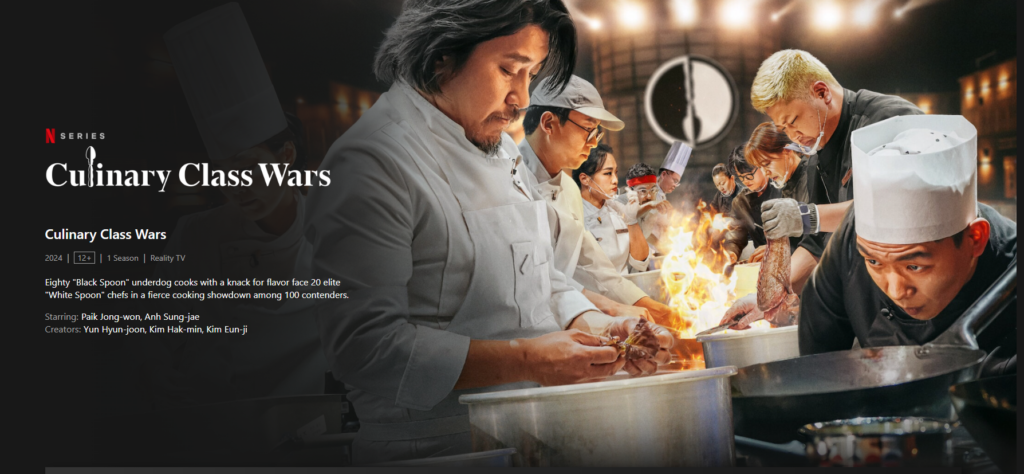Netflix recently launched an intriguing new show called Black & White Chefs.
The show features 100 renowned Korean chefs competing in a tournament-style cooking competition.
Among the participants, 20 are “White Chefs,” well-established figures in the Korean culinary scene who have made significant contributions to the industry and have earned solid reputations.
The other 80 are “Black Chefs,” who, while not as influential in the mainstream culinary industry, have gained fame in the underground food scene.
What’s remarkable is that the show has become the top-ranked non-English program globally on Netflix.
While it’s certainly an exciting concept, it does make me wonder: has the general public always been this interested in cooking competitions?
There have been plenty of Western shows featuring Michelin-starred chefs, but few have garnered this level of attention.
Another point of interest is how this show is sparking a culinary trend in South Korea, which, compared to other fine-dining nations, has fewer Michelin-starred restaurants. The rise in popularity could be a catalyst for the growth of the country’s gourmet industry.
In fact, restaurants owned by chefs featured on Black & White Chefs are now booked over a month in advance on popular reservation apps.
Interest in diverse cuisines—ranging from fine dining to Chinese, Japanese, Korean, and Western dishes—is also on the rise. For those working in the food industry, it’s clear that Netflix has brought a fresh wind of opportunity.
It’s undeniable that having such a dominant media platform like Netflix breathe life into the industry is playing a positive role in reviving the economy, especially in the wake of the post-pandemic slump.

Poster of Culinary Class Wars / Source: www.netflix.com
